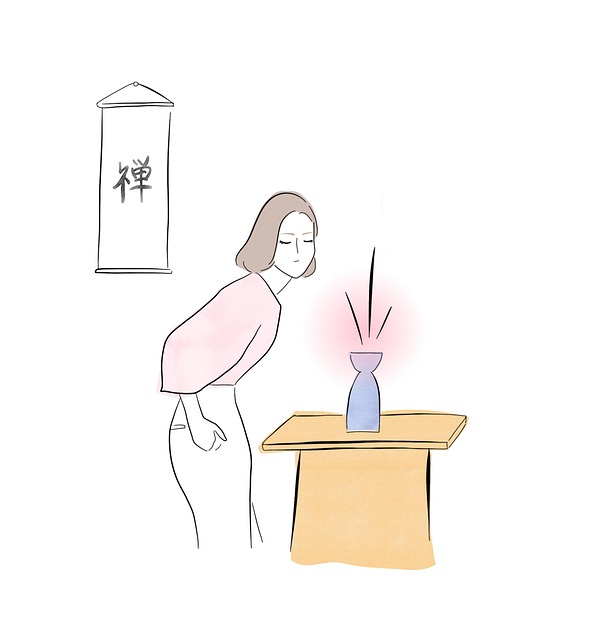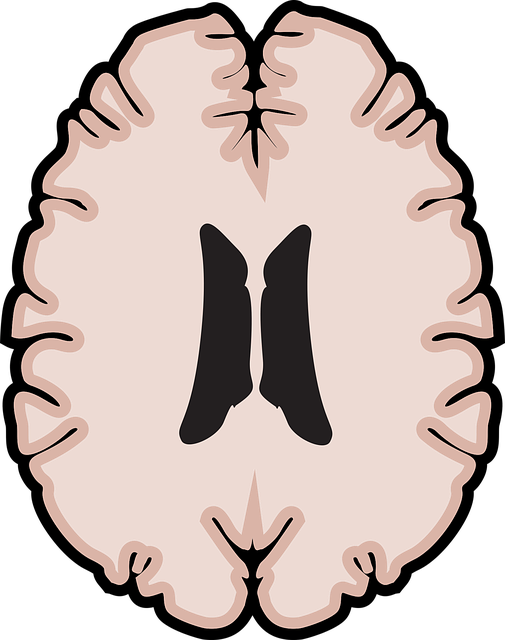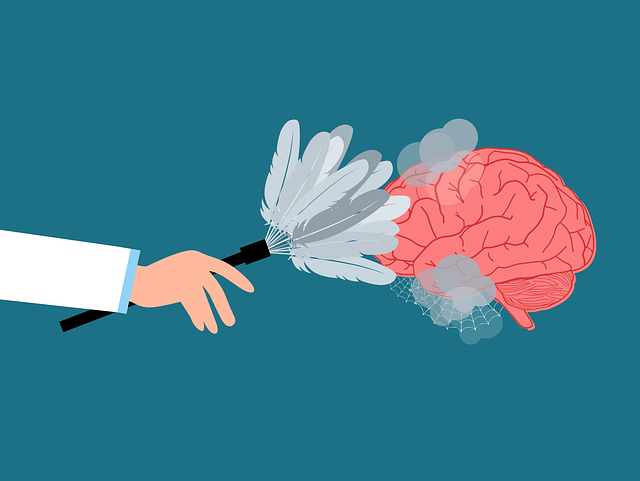Mindfulness meditation is transforming Denver Post-Traumatic Stress Disorder (PTSD) therapy, offering a holistic approach to healing and well-being. By cultivating present-moment awareness and non-reactivity, this ancient practice reduces the intensity of traumatic memories. Integrated with traditional therapy, mindfulness enables positive thinking and observation of mental processes. Preparation techniques like candles, essential oils, and deep breathing create a peaceful environment for effective stress management. Mindfulness meditation, highlighted in Denver's PTSD therapy scene, fosters emotional balance and resilience, with potential to inform Mental Health Policy Analysis. Overcoming challenges with self-compassion and professional support unlocks its benefits, integrating mindfulness into daily life for enhanced mental wellness.
“Unwind and reconnect with yourself through mindfulness meditation, a powerful tool in Denver Post-Traumatic Stress Disorder (PTSD) therapy. This practice guides individuals towards healing and recovery by fostering awareness and presence of mind. Our comprehensive guide navigates you through the journey, from understanding mindfulness’s benefits for PTSD to practical techniques and overcoming common challenges. Learn how to set the stage for your practice and integrate mindfulness into daily life, offering lasting improvements in mental well-being.”
- Understanding Mindfulness Meditation for PTSD Recovery
- Setting the Stage: Preparing for Your Practice
- Techniques and Exercises for Effective Meditation
- Overcoming Challenges and Common Obstacles
- Integrating Mindfulness into Daily Life
Understanding Mindfulness Meditation for PTSD Recovery

Mindfulness meditation has emerged as a powerful tool in the realm of PTSD recovery, gaining significant attention in the Denver Post-Traumatic Stress Disorder Therapy scene. This ancient practice focuses on cultivating present-moment awareness, enabling individuals to develop a deeper understanding and acceptance of their thoughts, emotions, and bodily sensations without judgment. By fostering this non-reactive state, mindfulness meditation helps reduce the intensity of traumatic memories and triggers associated with PTSD.
Incorporating mindfulness into therapy for PTSD involves guiding individuals through specific meditation techniques tailored to their needs. This process often begins with risk assessment for mental health professionals to ensure a safe and supportive environment. Regular practice promotes positive thinking by encouraging individuals to observe their mental processes rather than getting caught up in them. As Mental Health Awareness grows, the integration of mindfulness into traditional therapy approaches has shown promising results, offering a holistic path toward healing and well-being for those affected by PTSD.
Setting the Stage: Preparing for Your Practice

Setting the stage for your mindfulness meditation practice is akin to preparing a quiet sanctuary where your mind can find peace and clarity. Create a space free from distractions, where you won’t be interrupted. This could be a dedicated corner of your home or even a quiet room in a park, ensuring it’s a place you associate with relaxation. Lighting candles or using essential oils can help set a calming tone.
Before beginning, take a moment to acknowledge and accept the present moment, especially if dealing with post-traumatic stress disorder (PTSD). Engage in some deep breathing exercises to center yourself. This preparation is key in navigating Stress Management Workshops Organization’s recommended stress reduction methods or even for those who simply wish to enhance their Mental Health Awareness.
Techniques and Exercises for Effective Meditation

Meditation is a powerful tool for cultivating mental wellness and overcoming challenges like post-traumatic stress disorder (PTSD), as highlighted in the Denver Post-Traumatic Stress Disorder Therapy scene. Effective meditation involves various techniques and exercises designed to calm the mind, enhance focus, and promote emotional balance. One popular method is mindfulness meditation, which encourages individuals to pay attention to their thoughts and sensations without judgment. This practice helps individuals become more aware of their internal experiences, enabling them to manage stress, anxiety, and PTSD symptoms more effectively.
By integrating Mind Over Matter principles, practitioners can transform their relationship with stressful situations. Techniques such as deep breathing exercises, body scans, and guided visualizations facilitate a shift in perspective, encouraging individuals to respond rather than react to triggers. This proactive approach is vital for those navigating mental health challenges, as it fosters resilience and empowers individuals to take control of their well-being. Moreover, regular meditation practice can inform Mental Health Policy Analysis and Advocacy efforts by shedding light on the positive impact of holistic therapies in complementary healthcare strategies.
Overcoming Challenges and Common Obstacles

Overcoming Challenges and Common Obstacles
Mindfulness meditation can be a powerful tool for improving mental wellness, but it’s not always an easy path. Many individuals, especially those dealing with post-traumatic stress disorder (Denver Post-Traumatic Stress Disorder Therapy), may face various obstacles as they begin their practice. Common hurdles include difficulty focusing the mind and staying present, feelings of frustration or impatience, and even physical discomfort during meditation sessions. It’s important to remember that these challenges are normal and can be addressed with time and persistence.
To navigate these difficulties, individuals should approach mindfulness meditation with compassion towards themselves. Techniques such as deep breathing exercises and body scans can help center the mind and alleviate physical tension. Additionally, seeking support from Trauma Support Services or professional therapists who specialize in Depression Prevention can offer guidance tailored to individual needs. With the right approach and mindset, anyone can overcome these obstacles and reap the benefits of mindfulness meditation for their overall mental wellness.
Integrating Mindfulness into Daily Life

Integrating mindfulness into daily life can be a powerful tool for managing stress and enhancing overall well-being. Beyond formal meditation sessions, small moments of awareness throughout the day can make a significant difference. For instance, while commuting or engaging in mundane tasks, one can practice mindful breathing, focusing on the sensations of each inhalation and exhalation. This simple technique helps ground individuals in the present moment, reducing reactivity to stressors.
Incorporating mindfulness into daily routines fosters self-care practices that strengthen inner strength development. It encourages a non-judgmental awareness of thoughts and emotions, which is particularly beneficial for those dealing with post-traumatic stress disorder (PTSSD). The Denver Post-Traumatic Stress Disorder Therapy community emphasizes the role of mindfulness in cultivating resilience and promoting emotional regulation. Healthcare provider cultural competency training also highlights the importance of integrating mindfulness techniques to support clients in developing coping strategies that enhance their overall mental health journey.
Mindfulness meditation, as explored in this guide, offers a powerful tool for those navigating Denver Post-Traumatic Stress Disorder (PTSD) therapy. By integrating these practices into daily life, individuals can foster resilience and improve their overall well-being. Overcoming challenges through awareness and patience is key to reaping the benefits of mindfulness. Remember, with consistent effort, you can transform your journey towards recovery, one mindful breath at a time.














